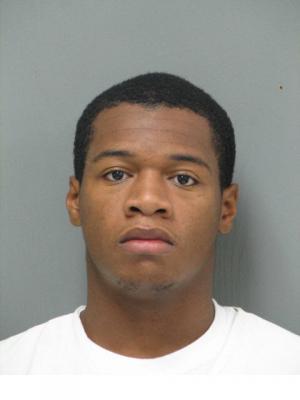Milton man, Shamar Walker, fights murder charges in death of son
A recent Cape Henlopen High School graduate charged with killing his infant son is seeking to suppress a Delaware State Police interview because he did not understand his Miranda rights.
Shamar Walker, 20, of Milton, has been charged with one count of murder by abuse or neglect in the April 2014 death of his 3-month old son, Derek. His attorneys, public defenders Daniel Stumpf and Rob Robinson, argued that Walker did not understand his Miranda rights when read during a police interview with Det. Fred Chambers.
Testifying during a Nov. 30 suppression hearing before Delaware Superior Court Judge M. Jane Brady in Georgetown, Chambers said when Walker was interviewed, he told Walker that he was not under arrest and could leave when he wanted. Prior to starting the interview, Chambers said, he read Walker his Miranda rights as a precaution.
Chambers said Walker appeared calm and cooperative, not overly emotional. He said Walker’s placid demeanor made him suspicious, given that his son had died only two days before. Walker mentioned during the interview that he had not slept much since his son died, but other than yawning a couple times, Walker did not seem tired or fatigued in the nearly two-hour interview.
Stumpf began his cross-examination aggressively, questioning Chambers as to when and how he would read a suspect his Miranda rights. Chambers said he read Walker his rights because the interview was being conducted in a police station.
Stumpf said Walker had no criminal history and thought police were seeking more information from him to figure out what caused Derek’s death – not interviewing him as a suspect. He said Walker was confused by the questioning, and Chambers was not straightforward with Walker about his right to an attorney.
Under questioning from prosecutor Melanie Withers, Chambers said at various points Walker asked for clarification to questions he did not understand. Chambers said at those points, he reworded the questions and asked again.
The prosecution also called clinical psychiatrist Stephen Mechanick, who interviewed Walker extensively on behalf of the state. Mechanick said in his opinion, Walker was fully capable of understanding and waiving his Miranda rights. While details of how Derek died were not made public at the hearing, during Mechanick’s testimony, it was revealed Walker had called 911.
Mechanick said in his two-and-a-half hour interview with Walker conducted July 31, he found Walker to be calm and composed but withdrawn and shy. He said reviewing Walker’s school records, he found an adopted young man who had problems processing verbal commands who had undergone speech and language therapy in 2010.
Mechanick said Walker had poor test scores and struggled to learn but was also part of his high school JROTC unit and a member of the wrestling team until his senior year. Mechanick said while on the surface, Walker did not appear to understand his Miranda rights, when each right was individually explained to him, he understood what was being asked. He said Walker understood he could have left Chambers’ questioning any time, but Walker also indicated that if he knew then what he knew now, he would have had an attorney present.
Mechanick said in his interviews, Walker indicated he was not emotionally prepared for fatherhood. He testified that Walker said at the time of Derek’s death that there was a dispute between Walker and the baby’s mother over the mother taking a second job.
The defense called its own psychiatrist, Dr. Joseph Zingaro, to testify that Walker has low-average intelligence and could not understand his Miranda rights, at least not without someone coaching him through it.
To support Zingaro’s position, the defense played a video interview conducted by public defender Gary Traynor in which Walker visibly struggles with answering questions about his Miranda rights. At one point, Walker says he does not know why a police officer would read Miranda rights and struggles to answer what a right is.
Zingaro testified that Walker’s adopted mother, with whom Walker had a strained relationship, felt her son was a follower, who was clingy and eager to please and that when challenged to process auditory information, would get a “deer in the headlights” look. He said during Chambers’ questioning, Walker did not understand that there would be no consequence if he exercised his Miranda rights.
“Knowing what Miranda is is not the same as understanding it. He’s not trying to hide. He just has trouble processing things,” Zingaro said of Walker.
In a day of lengthy testimony, the baby-faced Walker remained calm for most of the hearing, alternating between slouching in his chair and sitting upright at attention. It was during Zingaro’s testimony as to his ability to understand events that Walker broke down with his head in his hands, wiping tears from his face.
Brady has taken the matter under advisement; Robinson said he plans to argue two other pretrial motions in the near future.



















































